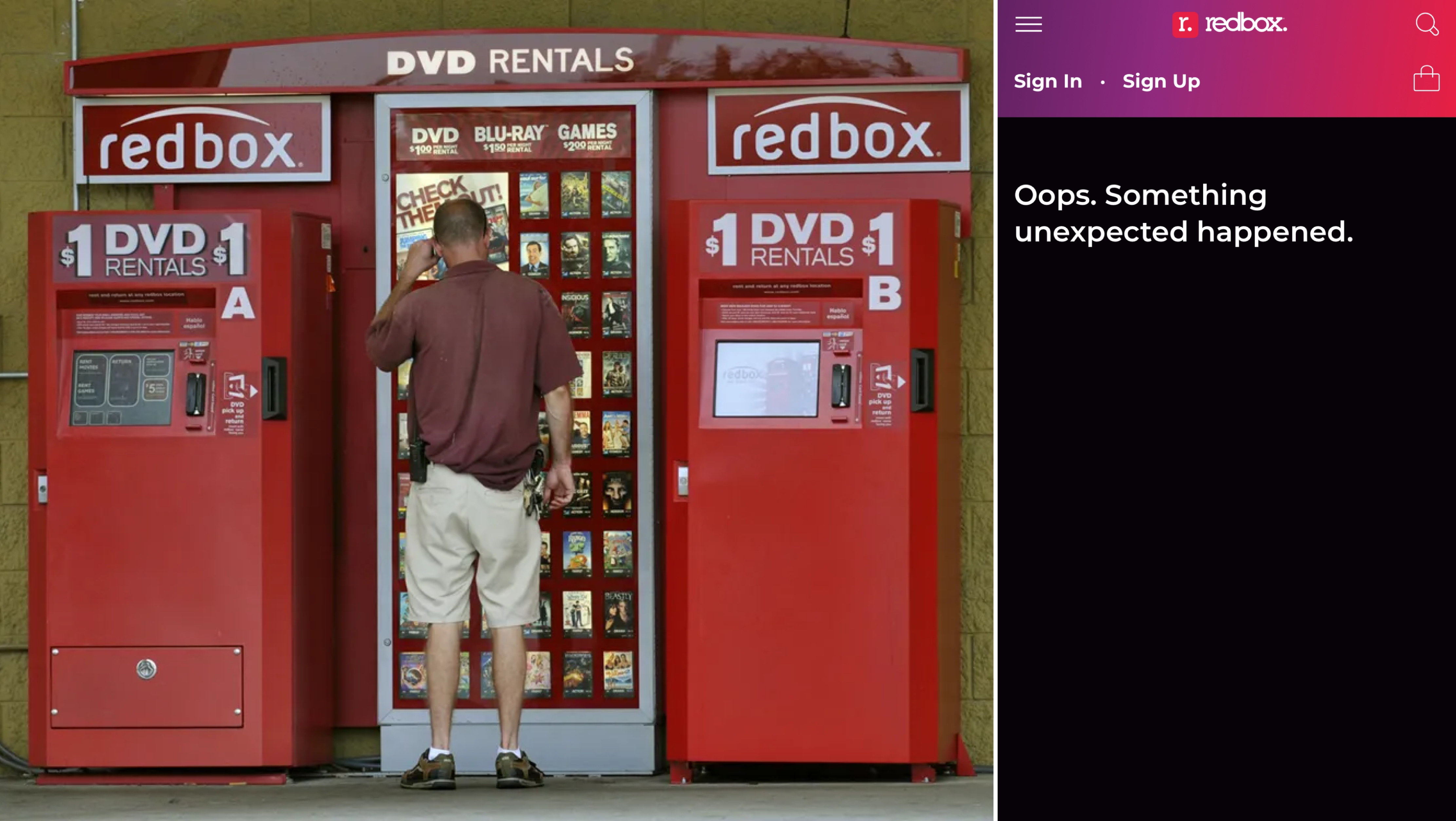Redbox, a beloved fixture in the entertainment landscape, is officially shutting down after 22 years of business. The decision comes as its parent company, Chicken Soup for the Soul Entertainment, announced a move towards bankruptcy liquidation. Once a giant in the DVD rental market, Redbox’s iconic red kiosks were a common sight across the United States, providing convenient movie rentals to millions of customers.
At its peak, Redbox operated over 24,000 kiosks nationwide, significantly surpassing the number of Blockbuster stores during its prime. However, the rise of streaming services gradually eroded the demand for physical media rentals. Companies like Netflix, Amazon Prime, and Hulu revolutionized how consumers accessed movies and TV shows, offering vast libraries of content available at the click of a button. This shift led to a steady decline in Redbox’s customer base, forcing the company to reevaluate its business model.
Over the years, Redbox attempted to adapt by launching several new services, including Redbox Instant by Verizon in 2013, Redbox On Demand in 2017, ad-supported live TV through Redbox Free Live TV in 2020, and Redbox+ in 2021. Despite these efforts to diversify its offerings and cater to digital audiences, the company struggled to compete with established streaming giants.
The financial strain became apparent as Chicken Soup for the Soul Entertainment, which acquired Redbox in a $375 million deal, found itself unable to sustain the business. With debts mounting up to $970 million, the decision was made to file for Chapter 11 bankruptcy on June 28, 2024. However, this was later converted to Chapter 7 liquidation on July 10, 2024, which involves shutting down all Redbox operations and selling off assets to pay creditors.
Adding to the turmoil, Chicken Soup for the Soul Entertainment failed to pay its employees and vendors for at least four weeks prior to the Chapter 11 filing. The bankruptcy court has noted that the company’s 1,000 employees will be unemployed and not receive severance or extended benefits. A bankruptcy trustee will investigate whether funds held in trust for employees were misappropriated, as there are allegations of gross mismanagement by the company.
Redbox’s closure marks the end of an era for DVD rentals and a significant moment in the ongoing transition from physical to digital media consumption. For many, the departure of Redbox signifies the loss of a convenient and nostalgic way of renting movies, but it also highlights the relentless march of technological progress and changing consumer habits.




